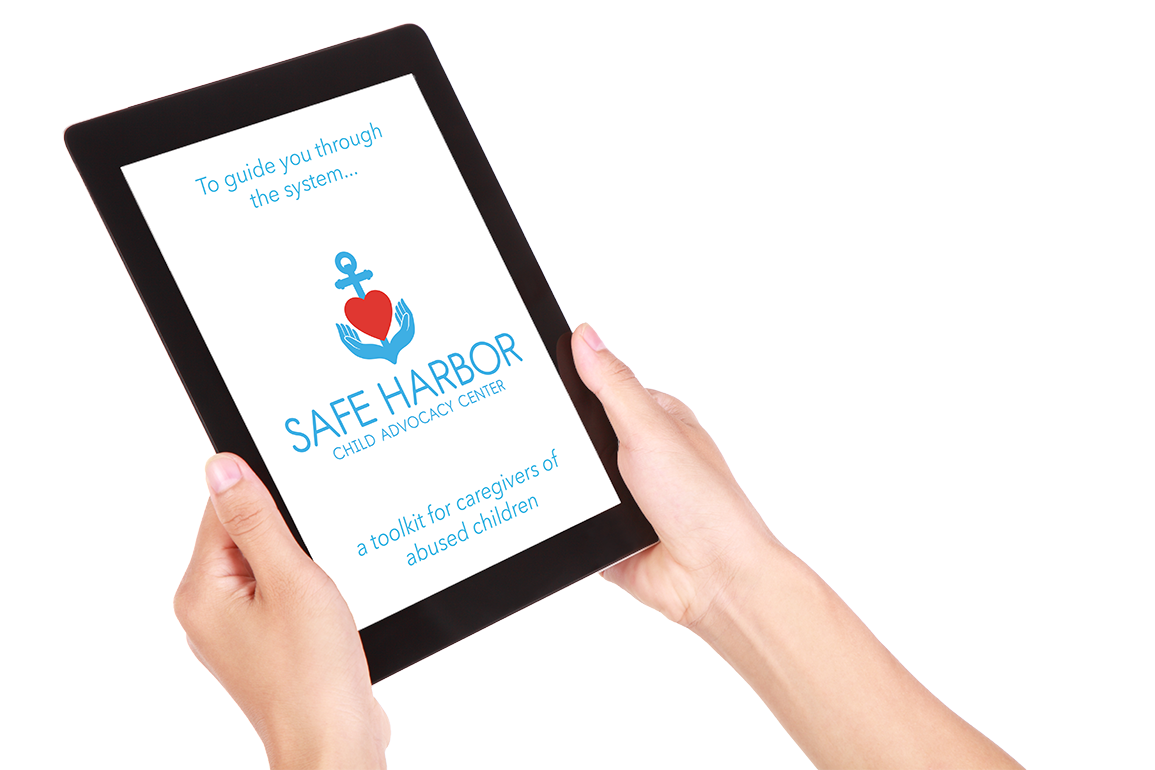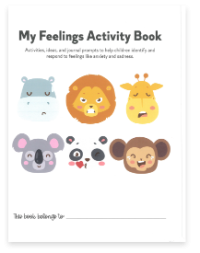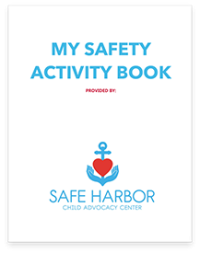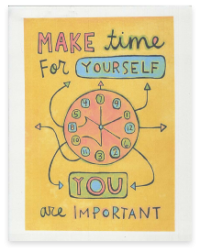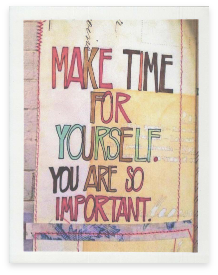Caregiver Resources

Safe Harbor Child Advocacy Center (CAC) is a place where children, caregivers, and members of local child abuse response teams come together for the safety and well-being of children. Learning that your child has been abused or may have been abused can leave you feeling anxious and overwhelmed. Safe Harbor was created to help children and caregivers through the process. Safe Harbor provides a safe, child-focused environment in which children can be interviewed, and caregivers can be connected to needed resources and services. Here is what you can expect during your visit:
What To Expect
You will be greeted by a CAC staff member who will check you and your child in and show you to a child-friendly waiting area where your child can play, read, or watch TV while you wait to meet the interviewer.
The interviewer will come out to meet you and your child and briefly talk with you about the interview process. If you or your child prefer, the interviewer will then show you the interview room where your child will be interviewed.
Once prepared, the interviewer will accompany your child to the interview room to complete the interview.
The Child & Family Advocate will meet with you to learn more about you as a caregiver and provide a few resource materials that you can review while your child is being interviewed.
Following the interview, the interviewer will return your child to the waiting area.
A forensic nurse will visit with you next and explain the services available to your child while at the CAC.
MDT members will meet with you (outside the presence of the child), explain next steps, and answer any questions you may have.
The Child & Family Advocate will meet with you again to discuss services and resources available to your child and family.
The Child & Family Advocate will accompany you to the lobby – this concludes your visit to the CAC.

FAQ
Caregiver Resources
Here you will find contact information for organizations that can assist caregivers with social and behavioral health services, safety, and other essential needs.
Activites for Children and Families
Literature for Caregivers
Child Neglect
Understanding and Coping with Problematic Sexual Behaviors in Children
Understanding and Coping with Problematic Sexual Behaviors in Children
Understanding and Coping with Problematic Sexual Behaviors in Children – Spanish
Resource Library
clothing resources
domestic violence resources
financial assistance resources
Housing resources
Emergency Shelters
List of Northern Virginia Homeless Shelters
List of Shelters – Fredericksburg Area
Virginia Micah Ministries Winter Emergency Shelter 11.2022 of Care Financial Resources
Experiencing Homelessness
Fredericksburg Regional Continuum of Care
Looking for Housing
Housing Resources – Central Virginia Housing Coalition
Mortgage-Rent Assistance
Protective Order information
mental health Resources
Low Cost Mental Health Clinics
Outpatient Therapy Services
Rappahannock Area Community Services Board
Virtual Therapy Platforms – Children _ Adolescents
Play Therapy
Play Therapy List of Providers
Problematic Sexual Behavior
Suicide Prevention Resources
Support Group Resources
Support Groups for Adults
Community Support Groups Rappahanock Area
Mental Wellness Support Group – Mental Health America
Rappahannock Area Mental Health Resources (Support Groups)
Support groups for Children & Teens
Transportation Resources
VIRGINIA CRIME VICTIM AND WITNESS RIGHTS
Resource Library – En Español
Asistencia con necesidades basicas del hogar (comida, ropa, etc)
Fredericksburg Food Bank _ United Way (Comida _ Asistencia financiera con Mortgage o Alquiler)
Que es una orden de proteccion_
Orden de Protección – Lista de Información (PO information list)
Ordenes de Proteccion en Virginia – Guia para las Victimas (PO guide for victims)
Salud Mental
Terapia para adultos
Catholic Charities Informacion para Terapia
Informacion para padres e cuidadores
Abuso Fisico y Negligencia Infantil (Physical Abuse & Neglect)
¿Qué es el abuso y la negligencia de menores (What Is Child Abuse and Neglect)
Como prevenir el abuso y la negligencia de menores (preventing child abuse and neglect)
Abuso Sexual Infantil (Sexual Abuse)
Como Afrontar El Shock del Abuso Sexual Infantil
Como Manejar el Estres – Abuso Sexual Infantil
Folleto Informativo Sobre el Abuso Sexual Infantil
Preguntas y Respuestas Acerca del Abuso Sexual Infantil
Comportamiento Sexual Inapropiado

